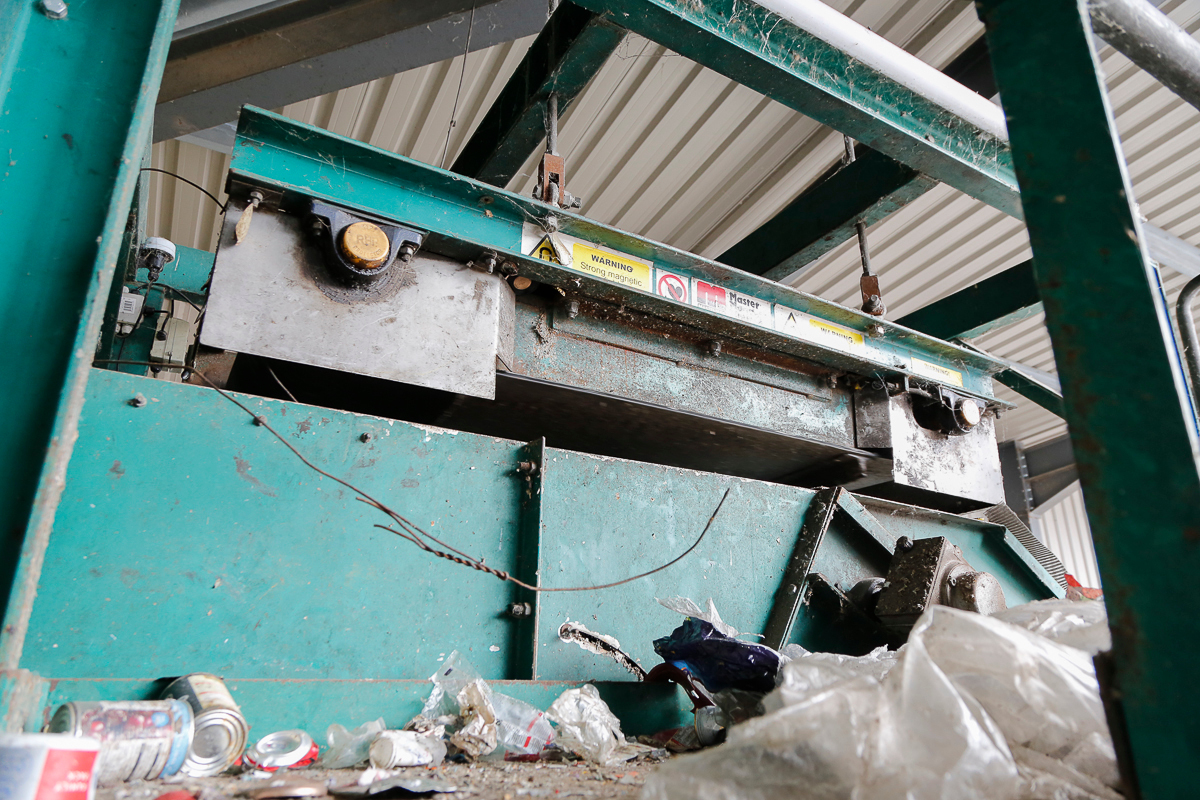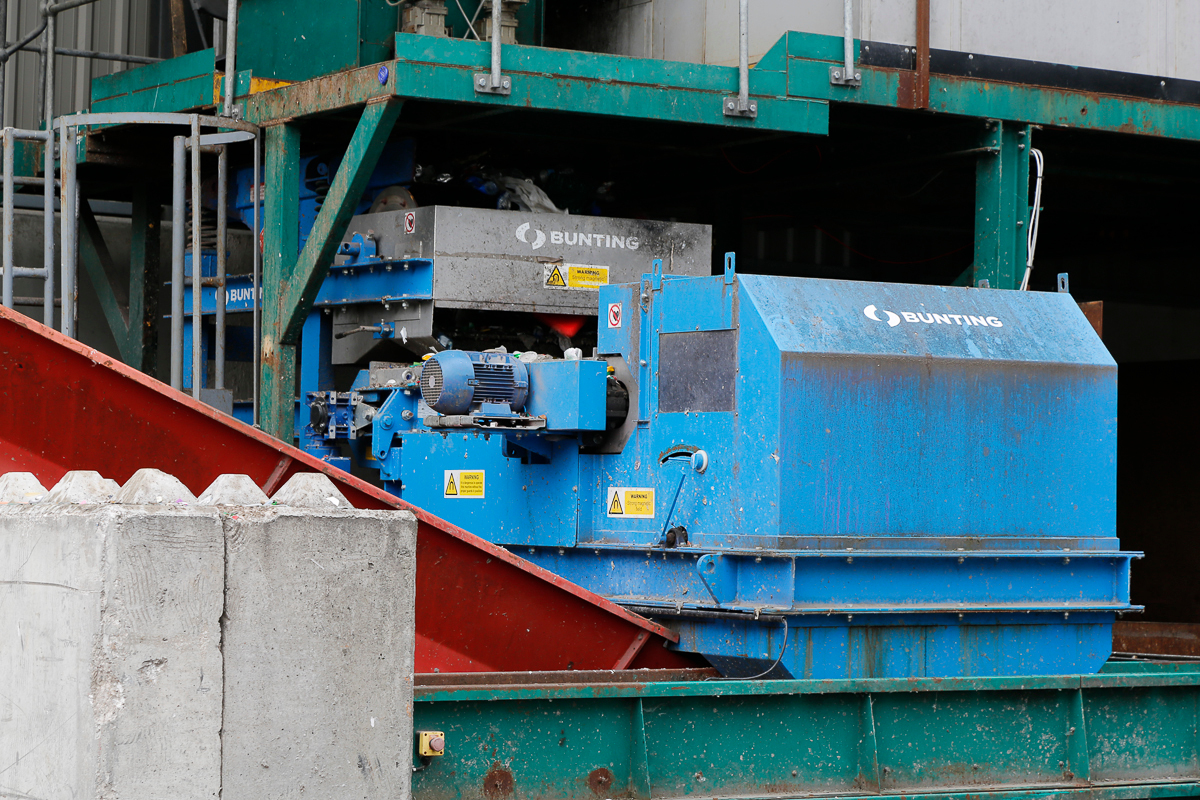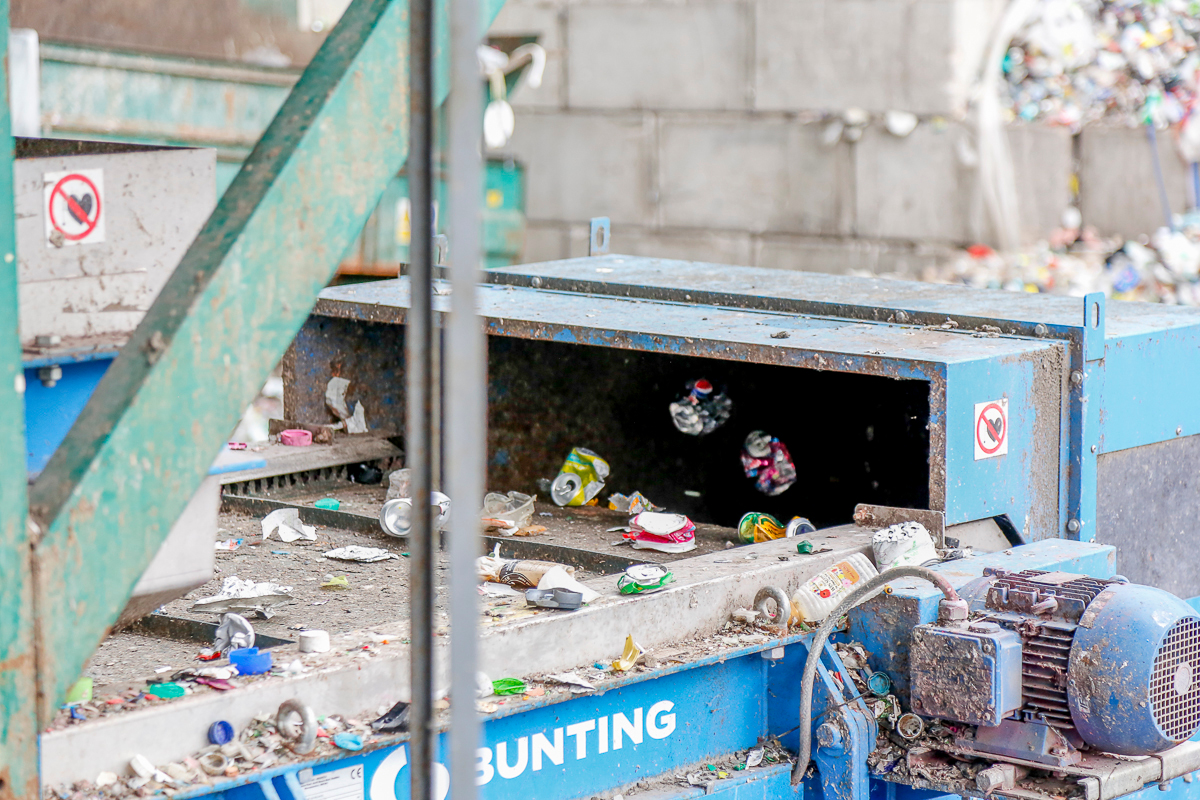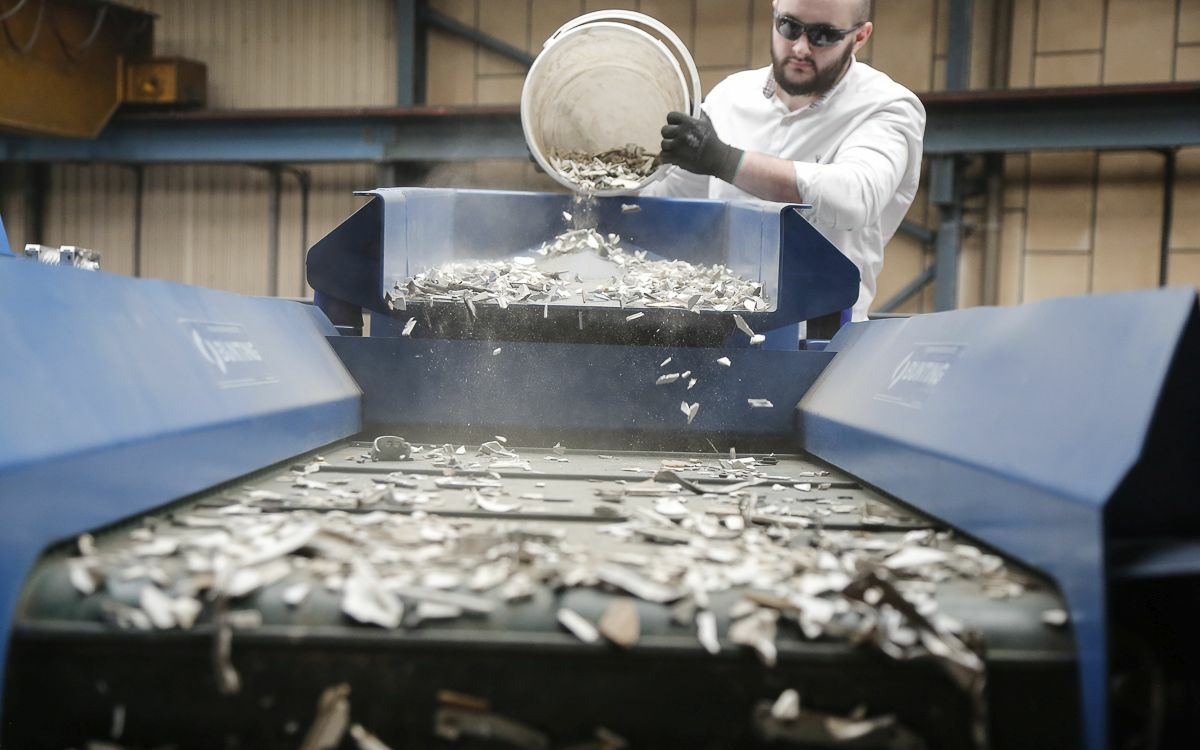Parry & Evans recover metal with Bunting Magnetic Separators
19.08.2022Recycling specialist Parry & Evans has installed Bunting magnetic separators to recover metal from pre-sorted domestic waste. At their Deeside plant in the United Kingdom, the company uses a Permanent Overband Magnet to recover ferrous metals such as steel food cans, and an Eddy Current Separator to reclaim valuable aluminium including drinks cans.
 Permanent Overband Magnet
Permanent Overband Magnet
© Bunting
Bunting is one of the world’s leading designers and manufacturers of magnetic separators, eddy current separators, metal detectors and electrostatic separators. The Bunting European manufacturing facilities are in Redditch, just outside Birmingham, and Berkhamsted, both in the United Kingdom.
Parry & Evans is a family-run waste management business established in 1961. With over 60 years’ experience in commercial waste disposal and recycling, the company is committed to making a difference to the environment through recycling. At the Deeside recycling facility, Parry & Evans process approximately 110 000 tonnes of pre-sorted domestic refuse annually, received from North Wales councils including Flintshire. The received waste is a mix of plastic bottles and containers, metals (such as cans and trays) and other recyclable materials. The aim of the operation is to recycle 100 % of the waste.
 Metal separation module
Metal separation module
© Bunting
The magnetic separators are located on a dedicated recycling line that only operates at night. In operation, approximately 2 t/h of material feeds up an incline conveyor and under the suspended Bunting Permanent Overband Magnet. Steel is attracted up and out of the conveyed burden towards the magnet face onto the continuously moving cleaning belt of the Overband Magnet. This belt transfers the separated steel into a designated collection area at a rate of approximately 500 kg/h.
The remaining waste passes through a picking area to remove oversize material such as buckets and drums, as well as any loose plastic bags. After passing through a plastic bottle crusher, which pierces the bottle to release any entrapped air and reduce the volume, the waste feeds onto Bunting’s Metal Separation Module, which includes two Vibratory Feeders, one high-intensity Drum Magnet, and an Eddy Current Separator.
 Aluminium cans thrown by the Eddy Current Separator
Aluminium cans thrown by the Eddy Current Separator
© Bunting
After the bottle crusher, a conveyor feeds the waste onto the first Vibratory Feeder, which spreads the material across the full 1-m width as well as liberating entrapments. The waste flows onto the rotating outer shell of a high-strength Drum Magnet. Stationary inside the Drum Magnet shell is a fixed magnet element constructed out of neodymium iron boron permanent magnets. Any small ferrous metal or magnetic particle is attracted and held to the surface of the rotating Drum Magnet shell before being transported and deposited underneath in a collection area. The remaining ferrous-free fraction falls onto a second Vibratory Feeder that transfers the waste onto the faster moving belt of the Eddy Current Separator.
An Eddy Current Separator is a dual pulley conveyor system, where the non-metallic rotor cover houses an independently rotating high-speed magnetic rotor. Separation occurs when a non-ferrous metal particle (e.g. aluminium) is conveyed into the magnetic zone. The non-ferrous metal particle is exposed to rapidly changing magnetic polarity. This induces ‘eddy currents’ into the particle generating an electrical current (Fleming’s left-hand rule) that subsequently creates its own magnetic field. The two magnetic fields oppose each other (i.e. North vs North pole repulsion), causing the repulsion of the non-ferrous metal particle and change in trajectory. The measured positioning of a splitter enables the separation of non-ferrous metals from non-metallic material due to the altered and unaltered material trajectories.
In the Parry & Evans operation, approximately 300 kg/h of non-ferrous metals such as aluminium drinks cans and aluminium trays are forcibly ejected over the splitter and moved into a collection area on a small conveyor. On the site, the combination of the Overband Magnet, Drum Magnet and Eddy Current Separator recover approximately 800 kg/h of metal, which helps ensure the financial viability of this part of the Parry & Evans recycling operation.
“The Bunting magnetic separators provide us with effective and reliable metal recovery,” said Steve Walker, Parry & Evans Site Manager.

